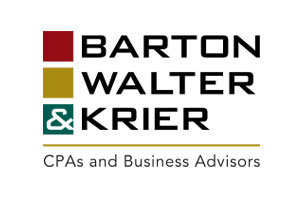An ERISA Fundamentals Review
February 9, 2023 | Barton Walter and KrierThe Employee Retirement Income Security Act (ERISA) oversees and manages benefit plans provided to employees by their employers. Since its inception, some guidelines have been amended, but the basic principles remain the same. At Barton, Walter & Krier, we wanted to present an ERISA fundamentals review and offer our services to businesses on this retirement plan protection.
ERISA Explained
In 1974, the ERISA federal tax and labor law established regulations on employee benefits plans. The goal was to protect participants’ retirement savings from potential misconduct. The safeguards set forth by ERISA protect current employees and their beneficiaries as well as retirees.
Employer-sponsored plans covered under ERISA include 401(k)s and 403(b)s, pensions, and profit-sharing plans. Specified non-retirement plans such as FSAs, disability and life insurance, and HMOs are also covered by ERISA.
Updates to ERISA
While the initial act incorporated the minimum standards for benefits plans, the laws have been updated over the decades to reflect healthcare legislation and workers’ ever-evolving needs.
Some of the most important modifications to ERISA include:
- Consolidated Omnibus Budget Reconciliation Act, or COBRA, which offers a temporary extension of health coverage following, for example, a job loss.
- Health Insurance Portability and Accountability Act, or HIPAA, prevents health information disclosure without consent.
- Newborns’ and Mothers’ Health Protection Act, requiring group health plans with maternity coverage to pay for a 48- to 96-hour hospital stay following childbirth.
- Mental Health Parity Act, protecting against financial limits on mental health benefits.
- Women’s Health and Cancer Rights Act, offering protections for patients having breast reconstruction after a mastectomy.
- Affordable Care Act, giving most uninsured citizens access to health coverage.
Eligibility and Obligations
Requirements for ERISA apply equally to private-sector businesses of all sizes. Plans that provide benefits to businesses with at least one employee are covered, as are S-corps and C-corps, partnerships, and LLCs.
At the minimum, employers are required to act in the best interest of participants. This includes guaranteeing that benefit plans are fair, well-managed, and financially stable. In addition, employers must ensure participants have access to plan information, updates, and fees.
Ask Us
This, of course, is simply an ERISA fundamentals review, outlining the bare-bones basics of the Act. With its many avenues and amendments, ERISA can seem complex and confusing. But we’re here to help. The professional team at BWK can help tailor your benefits planning to fit the specific needs of your business. Contact us today with questions or to learn more.

